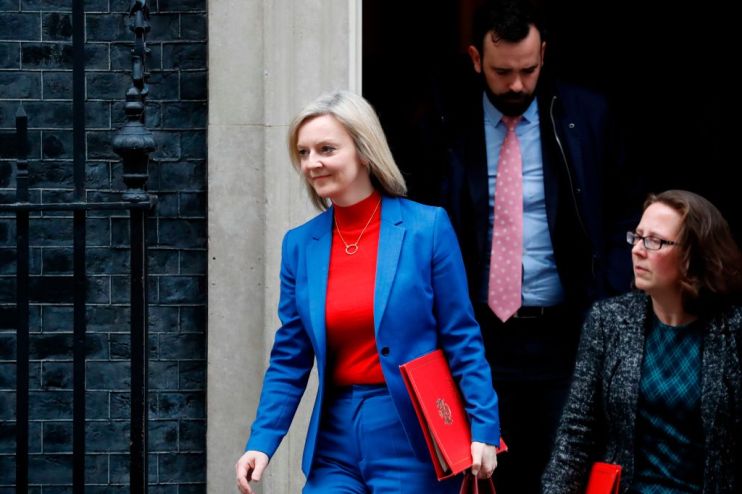UK-US trade deal set to devalue UK’s financial services sector

The government has admitted a free trade deal with the US is likely to lead to a drop in the value of the UK’s financial services sector, as other parts of the UK economy begin to expand.
Number 10 this morning published its negotiating mandate for talks with Washington.
Those discussions, expected to be spearheaded by chief trade negotiation adviser Crawford Falconer, are likely to kick off this week, in concert with parallel talks in Brussels.
The government believes industries including ceramics, cars, food and drink will benefit most from a US trade deal.
But for financial services, a deal will actually erode the sector’s gross value added (GVA) by around 0.5 per cent. In 2018, that figure stood at £131bn, equivalent to 6.9 per cent of the UK’s GDP.
The document also reveals that employment in financial services is also likely to fall “in the long run”.
“This reflects a reallocation of resources towards other sectors in the economy as they expand following the free trade agreement [FTA],” the mandate stressed. “It does not indicate that the financial services sector would be smaller in the long run than it is today.”
It also insisted that the sector would be “more productive” as a result of the FTA, pointing to “a positive impact for consumers derived from lower prices and increased consumption”.
Read more: Exclusive – UK preparing to break with EU on food standards at WTO meeting
The mandate also warned that the impact of an FTA on financial services was “uncertain”, stressing that the modelling should not “be taken to reflect the level of ambition expected in financial services in the FTA or any financial regulatory agreements or arrangements which could be negotiated separately to an FTA”.
But the government has made it clear that financial services is less of a priority than fishing, which it sees as integral to the question of the UK’s sovereignty, even though proportionately it is much smaller, contributing just £1.4bn or 0.12 per cent to the UK’s economy.
Speaking to the BBC this morning, international trade secretary Liz Truss reiterated the government’s commitment to fishing and control of the UK’s waters.
“We are not going to trade away our fishing in a trade deal with the EU or any other negotiating partner for that matter,” she said. “I’m not going into what-ifs. What I’m saying is that we are going to get a deal with the EU that does not involve selling out our fishing.
“We’ve been very clear on our position on fishing, we won’t be selling out our fishing. One of the reasons why people voted to leave the EU was they wanted the UK to become an independent coastal state. To have control over our own waters. It’s as simple as that.”
However the City has responded to the mandate positively.
Miles Celic, chief executive of TheCityUK, said: “The UK has the largest net trade surplus in financial services in the world, but we cannot take this for granted. Britain must constantly review its global competitiveness if we are to hold our lead.
“Deepening the UK’s wider trade and investment relationship with the US will strengthen one of our most important economic relationships, and this has the potential to deliver wide benefits.
“Measuring and modelling trade in services is notoriously hard to do – evidenced by the fact that in recent years, the UK and the US have both simultaneously reported a services trade surplus with each other. These challenges often lead to the value of services trade being underestimated compared to goods trade.”
Catherine McGuinness, chair of the City of London Corporation’s Policy and Resources Committee, added:“The UK and USA are the world’s leading exporters of financial services and are each other’s biggest services trading partners, so these negotiations are an opportunity to set a new global standard on what is possible on cross border financial services trade.
“As the biggest contributor to the UK’s trade surplus in services and as a key driver for the prosperity of businesses and households on both sides of the Atlantic, the financial services sector should be a top priority in any future free trade agreement.
“Alongside these discussions, closer cooperation on regulatory issues can play an equally important role in increasing transatlantic trade in financial services.”
A DIT spokesperson said: “The government is committed to ensuring the UK continues to be a leading global financial centre. The UK and US have a unique opportunity to set a new gold standard for what can be agreed in FTAs on financial services.
“The economic modelling does not take into account all the factors relevant to financial services trade and does not reflect what we expect to achieve for financial services.”